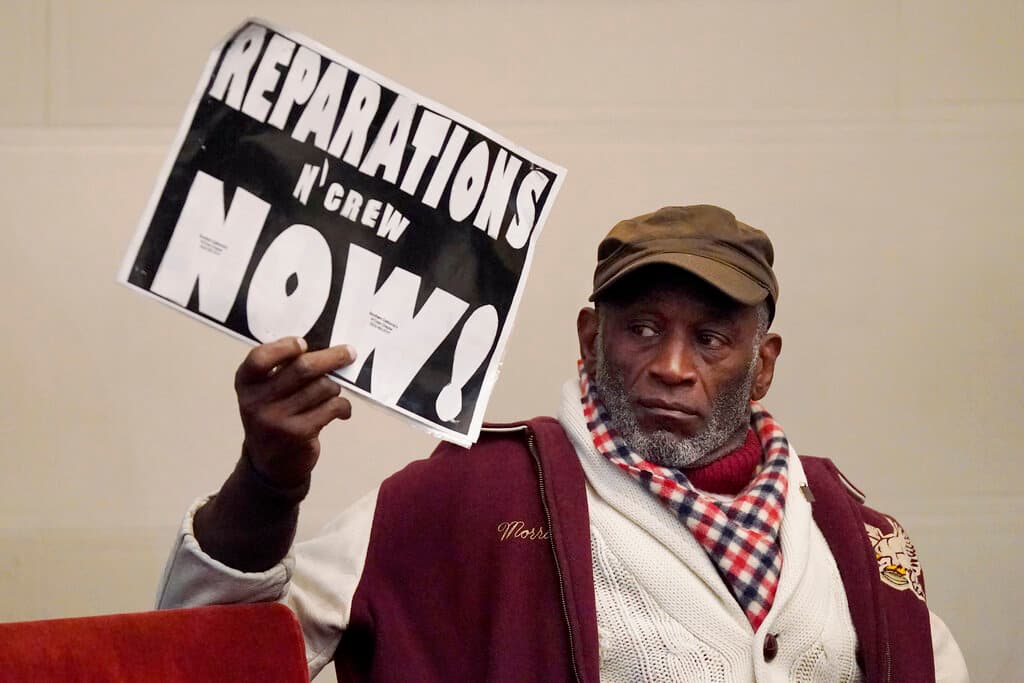California Lawmakers Introduce Reparations Package To Dismantle ‘Legacy of Slavery and Systemic Racism’
The bills aim to restore race-based eminent domain property takings, prohibit hairstyle discrimination, and formally apologize for slavery — but they don’t include direct cash compensation.

As Black History Month kicks off, California lawmakers are planning to introduce a first-of-its-kind package of more than a dozen bills aimed at making reparations to Black Americans for the country’s legacy of slavery.
The proposals are a series of sweeping reforms that could face legal challenges like affirmative action in higher education did, Politico reports, but the bills notably do not include the highly-contentious idea of direct cash payments to descendants of enslaved African Americans. California entered the Union as a free, non-slavery state in 1850 and later deployed thousands of troops to fight for the north during the Civil War.
“While many only associate direct cash payments with reparations, the true meaning of the word, to repair, involves much more,” an assembly member and chair of the Black Caucus, Lori Wilson, said in a statement. “We need a comprehensive approach to dismantling the legacy of slavery and systemic racism.”
The package will address topics from criminal justice to education to “food justice,” Ms. Wilson added. “The Caucus is looking to make strides in the second half of this legislative session as we build towards righting the wrongs of California’s past in future sessions,” she said.
The bills follow the state’s 2020 law that resulted in a Reparations Task Force to study slavery’s lingering effects on Black Americans. The task force issued a lengthy report last summer with proposals to “end, once and for all, the discriminatory harm and suffering that those descended from enslaved Africans have uniquely endured and continue to experience in every facet of life.”
The report said that the African American story was “marked by repeated failed promises to right the wrongs of the past” and said that even 160 years after slavery was abolished, it remains “embedded” in America.
“Apologies alone are inadequate reparations to victims,” the report stated. “But when combined with material forms of reparations, apologies provide an opportunity for communal reckoning with the past and repair for moral, physical, and dignitary harms.”
One bill aims to restore property takings from race-based eminent domain, others formally recognize and apologize for slavery and its effects on descendents, and another proposal aims to eliminate license barriers to those with criminal records, prioritizing African Americans who are descendents of slaves, according to a list of bills reported by the Los Angeles Sentinel.
The bills would also include expanded access to STEM education, funding for improved life expectancy, and prohibit discrimination based on natural hairstyle.
Pew Research surveys indicate that views on reparations “vary widely by race and ethnicity,” with 77 percent of Black Americans supporting it, while only 18 percent of white Americans are in favor.

